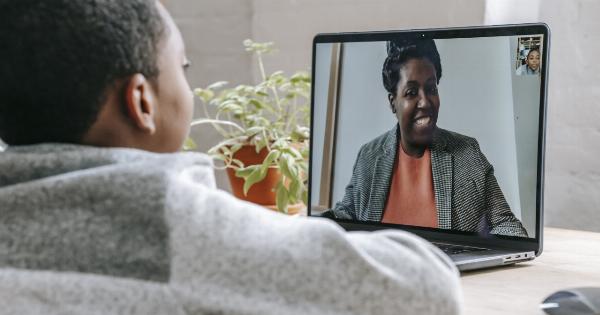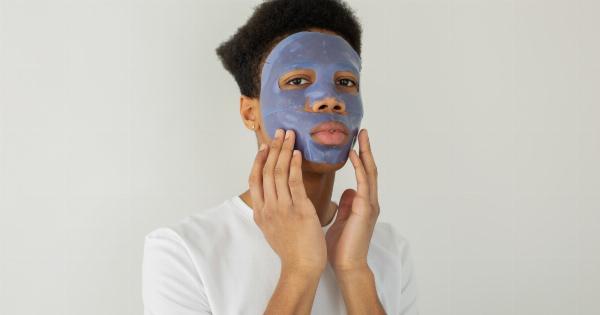When it comes to animals that capture our affection, birds may not rank high on everyone’s list. While some people find them fascinating and even consider birdwatching a beloved hobby, others simply don’t feel the same connection.
Understanding the reasons behind this indifference can help us appreciate these winged creatures better and perhaps even change our perspective. So, let’s explore why some people don’t like birds and how we can potentially alter this sentiment.
A Matter of Perception: Common Reasons for Dislike
1. Noise Levels:.
Many individuals associate birds with loud and incessant chirping, which can be bothersome to some. The constant noise pollution can grate on the nerves, especially those of people seeking peace and quiet.
However, it is important to remember that not all bird species are exceptionally vocal, and some can even provide soothing melodies.
2. Fear:.
Some individuals may have an inherent fear of birds, known as Ornithophobia. This fear could stem from various reasons, such as an unfavorable encounter in the past or cultural beliefs and superstitions.
Addressing and understanding these fears can help reduce anxiety and discomfort around birds.
3. Messiness:.
Bird droppings are a part of nature and can lead to unsightly, unhygienic situations in public spaces or residential areas. The messiness associated with birds can turn some people off, particularly those who value cleanliness and neat surroundings.
4. Lack of Understanding:.
Bird behavior and biology can be complex, and without proper knowledge, some individuals might find it hard to connect with these creatures.
Understanding the diversity of bird species, their impressive abilities, and unique characteristics can pique interest and appreciation.
5. Negative Encounters:.
Sometimes, negative encounters with birds, such as aggressive interactions or bird-related accidents, can create aversions towards these animals.
Acknowledging that such interactions are not typical for most bird species and avoiding generalizations can help rebuild a positive perception.
The Beauty of Birds: Reasons to Change Your Mind
While it’s understandable that not everyone finds birds appealing, there are numerous reasons to consider reconsidering our perceptions:.
1. Aesthetics:.
Birds come in an array of vibrant colors, patterns, and sizes, and watching them in their natural habitats can be a visual delight. The striking plumage and graceful movements can captivate even the most skeptical onlookers.
2. Environmental Benefits:.
Birds play crucial roles in ecosystems as pollinators, seed dispersers, and pest controllers. For example, hummingbirds are exceptional pollinators, helping sustain diverse plant life.
Recognizing the importance of birds in maintaining ecological balance can make us appreciate their significance.
3. Songs and Sounds:.
Instead of perceiving bird sounds as noisy disturbances, we can train ourselves to appreciate them as a beautiful symphony of nature. Many birdsongs are extraordinarily melodious and carry significant cultural value in different societies worldwide.
4. Fascinating Behaviors:.
Birds engage in a wide range of intriguing behaviors, such as complex mating dances, nest construction, and migration. Witnessing these behaviors can evoke a sense of wonder and admiration for their intelligence and adaptability.
5. Availability for Observation:.
Birds are often easily accessible for observation, even in urban environments. Watching them in parks, gardens, or even from the comfort of our own homes can provide opportunities to connect with nature and experience deep relaxation.
How to Cultivate a Love for Birds
1. Educate Yourself:.
Learning about different bird species, their habits, and unique characteristics can be a fascinating journey. Books, documentaries, and online resources can help expand your knowledge and ignite curiosity.
2. Visit Bird Sanctuaries or Aviaries:.
Immersing yourself in bird-focused environments such as sanctuaries or aviaries can provide firsthand encounters with various species. Observing their behaviors and interacting with knowledgeable staff can deepen your understanding and appreciation.
3. Start Birdwatching:.
Birdwatching is a popular hobby that allows you to observe birds in their natural habitats. You can begin by simply observing birds in your local area or joining birdwatching groups to learn from experienced enthusiasts.
4. Feed Birds in Your Backyard:.
Setting up bird feeders in your backyard can attract different bird species, providing you with opportunities to observe their behavior up close. Ensure that you choose appropriate feed and maintain proper hygiene to support the birds’ health.
5. Volunteer for Bird Conservation Organizations:.
Getting involved with bird conservation organizations allows you to contribute to their welfare directly.
Participating in habitat restoration projects, bird banding programs, or volunteering at bird rehabilitation centers can foster a deeper connection with these creatures.
Discover the Wonders of the Avian World
Birds, though not universally adored, possess awe-inspiring beauty and remarkable attributes. Changing our perspective towards them requires an open mind and a willingness to explore the depths of their world.
By understanding the reasons behind our disconnect and actively seeking opportunities to engage with birds, we can forge a newfound appreciation for these magnificent creatures and ultimately enrich our understanding of the natural world.































